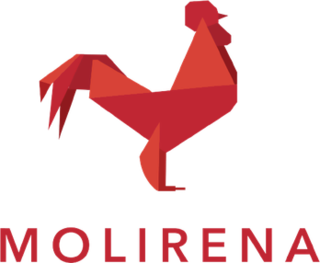Related Research Articles

The Nationalist Republican Liberal Movement is a centre-right conservative-liberal political party in Panama.

General elections were held in Panama on 10 May 1964, electing both a new President of the Republic and a new National Assembly.

General elections were held in Panama on 20 May 1960, electing both a new President of the Republic and a new National Assembly.

General elections were held in Panama on 13 May 1956, electing both a new President of the Republic and a new National Assembly.
DIPAL Party, was a Panamanian political party.
The Democratic Action Party was a Panamanian conservative political party.
The Liberal Civil Resistance Party was a Panamanian centrist liberal political party.
The Nationalist Party was a Panamanian small radical nationalist , personalistic political party.
The National Reformist Party was a Panamanian small center-left political party.
The Socialist Party was a Panamanian left-wing political party created in 1933 by intellectuals and labor unionists who split off from the Liberal Party and rejected the Communist Party.
The Third Nationalist Party was a Panamanian conservative, radical nationalist political party.
The National Patriotic Coalition was a Panamanian conservative nationalist political party.
The National Liberation Movement was a Panamanian right-wing liberal political party.
The Revolutionary Isthmian Party was a Panamanian left-wing political party.
The National Civic Party was a Panamanian small liberal political party.
The Radical Action Party was a Panamanian small centre-right political party.
The Renewal Party was a Panamanian right liberal political party.
The Popular Union Party was a Panamanian centrist liberal political party.
The National Renewal Movement was a Panamanian neo-liberal political party.
The Liberal Party was one of two major political parties in Bolivia in the late 19th century and the first half of the 20th century. The other was the Conservative Party. The Liberal Party was formally founded in 1883 by Eliodoro Camacho. The party espoused freedom of religion, a strict separation between church and state, legal acceptance of civil marriages and divorce, and strict adherence to democratic procedures. When the party took power in 1899, it moved the base of the presidency and the Congress to La Paz, which became the de facto capital city. The Supreme Court remained in Sucre. To this day, Sucre is the de jure capital of Bolivia while La Paz acts as the de facto seat of government.
References
- ↑ Panama: election factbook, May 12, 1968. Washington: Institute for the Comparative Study of Political Systems. 1968. Pp. 21.
- ↑ Panama: election factbook, May 12, 1968. Washington: Institute for the Comparative Study of Political Systems. 1968. Pp. 21.
- ↑ Political Handbook of the world, 1959. New York, 1959. Pp. 148.
- ↑ Political Handbook of the world, 1968. New York, 1968. Pp. 214.
- ↑ Elections in the Americas : a data handbook / ed. by Dieter Nohlen, Vol. 1. [Oxford] [u.a.]: Oxford Univ. Press, 2005. Pp. 532.
- ↑ Elections in the Americas : a data handbook / ed. by Dieter Nohlen, Vol. 1. [Oxford] [u.a.]: Oxford Univ. Press, 2005. Pp. 532.
- ↑ Elections in the Americas : a data handbook / ed. by Dieter Nohlen, Vol. 1. [Oxford] [u.a.]: Oxford Univ. Press, 2005. Pp. 533.